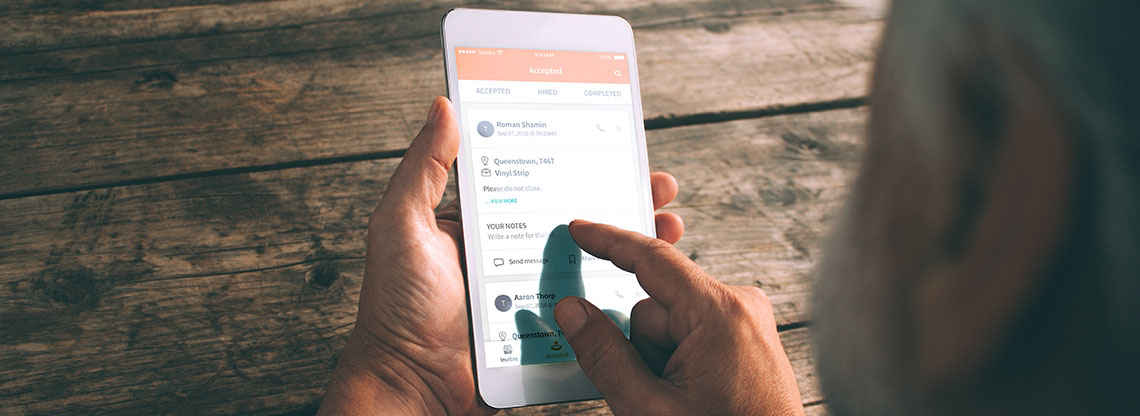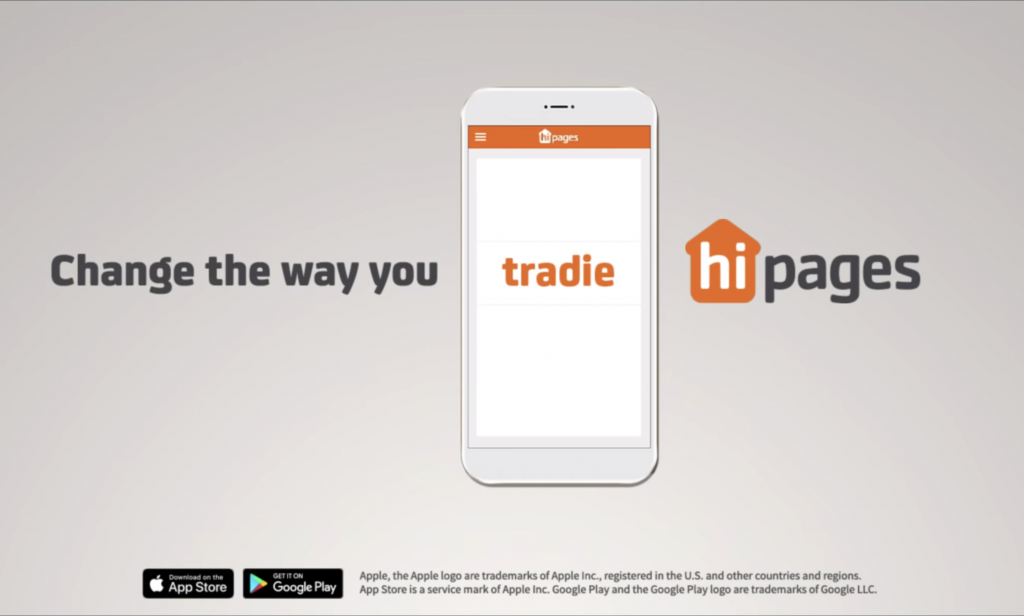The challenge
Hipages Chief Customer Officer Stuart Tucker said: “Like a lot of digital businesses, this business was built on paid search because there’s a lot of search activity going on in this category.”
And while paid search was working to an extent, the awareness issue wasn’t going away. Given Australians spend $73 billion a year on tradies, Tucker knew the business was missing out on a larger share of the pie.
Hipages needed an approach that would deliver on the promise of long-term brand building as well as driving short-term results such as app downloads and job bookings.
“We have a really inconsistent approach to brand-building activity. In fact, we have never really, consistently, invested in our brand,” said Tucker. Enter TV.
Meanwhile, app downloads drove jobs from new app customers 69% above baseline during the campaign. And there was a marked increase in activity from lapsed users who had previously downloaded the app.
The TV campaign had managed to achieve both short- and long-term results for the business with Tucker noting: “Short term, we saw immediate commercial returns and a positive ROI on TV investment. Long term, the TV spend has led to a sustained uplift in brand awareness and consideration. It’s rare to see a campaign that can deliver on both these outcomes and TV played a major role.”
The results
To better understand the impact of TV advertising on the hipages business, ThinkTV commissioned KPMG Australia to undertake marketing mix modelling, a statistical analysis using marketing data to evaluate the historic and future impact of various marketing tactics.
Overseen by KPMG Economics, the KPMG Marketing Mix Model research was based on data provided directly by hipages and other external sources and included comprehensive data cleaning, econometric analysis as well as rigorous model development and testing. The models and their output were also stress-tested by external parties, including verification by an external academic expert to confirm the modelling technique was appropriate.
The KPMG modelling found that while search delivered the highest conversion rate at 80%, TV delivered the second-highest contributing 11% of hipages’ job volume from a 10% share of total media investment.
The modelling also found that TV was the only non-digital channel (including radio, print and outdoor) to command a positive short-term return, delivering a return on investment (ROI) of $1.12. Additionally, TV drove more branded search clicks than any other broadcast media channel and delivered a 39% increase in branded search clicks relative to radio. And the KPMG modelling determined that TV has a long-lasting impact.
KPMG Director Karen Halligan commented: “According to our econometric analysis, TV delivered a positive short-term ROI for hipages in addition to building long-term brand awareness. TV also drove an uplift in app downloads, a key driver of customer lifetime value.”
Tucker and the hipages team were so impressed with the results, the business signed on as a platinum sponsor of season 15 of The Block which began airing this week. And after the first episode, Tucker has already seen an influx of job requests and tradespeople signing up to the platform.


